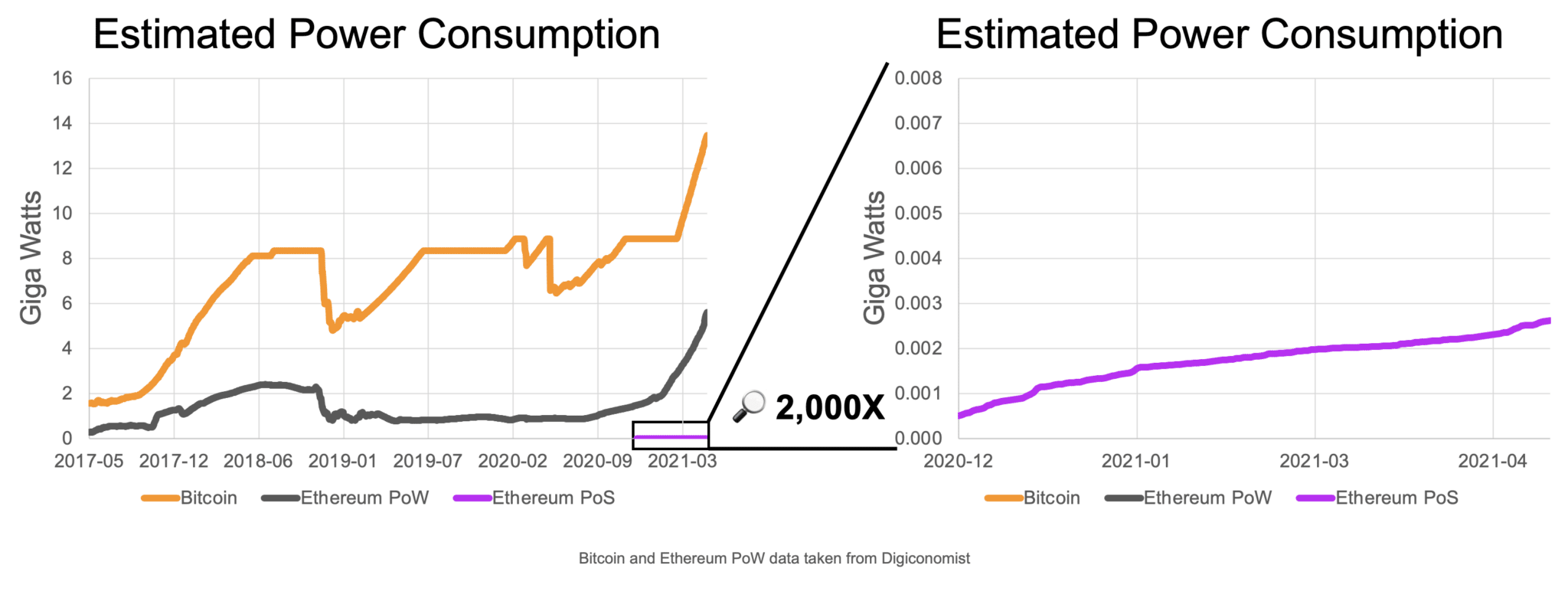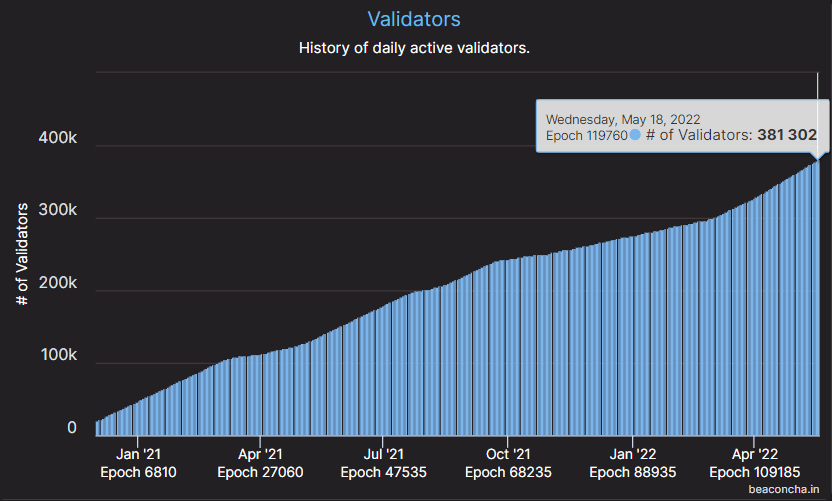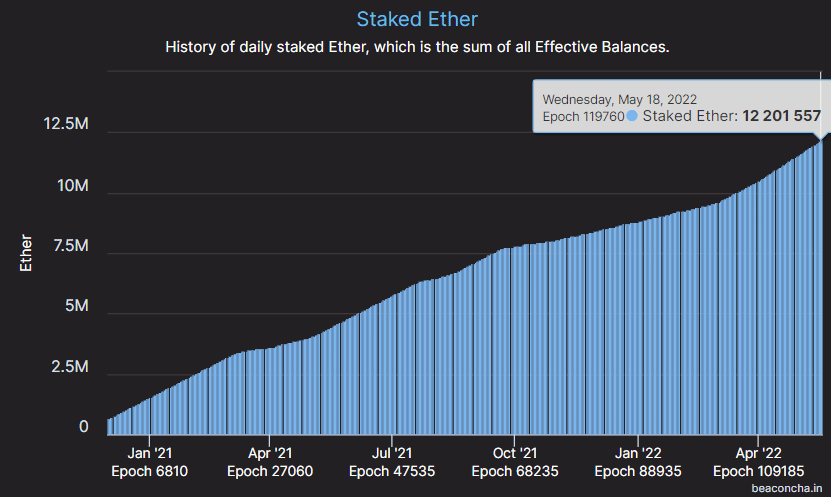The 12-year-old web security company, Cloudflare, announced on May 17 that it would be launching its next series of experiments for advancing web3.
This will include supporting the Proof of Stake (PoS) consensus mechanism Ethereum is preparing for by launching its own validator nodes.
Ethereum’s Merge
Known to be one of the most anticipated events since last year, “The Merge” will officially bring a Proof-of-Stake consensus mechanism to the Ethereum blockchain.
Running on Proof of Work (PoW), Ethereum is known to consume excessive energy to validate a block and verify the transactions that occur on-chain. This will change with PoS since the computational power is reduced.
Through PoS, anyone can become a validator by staking 32 ETH. How PoS reduces power consumption is that, instead of solving complex algorithms, one validator is given the opportunity to validate the block, which is then attested by 128 other validators, which will verify the block’s authenticity.
According to data released by Ethereum last year, in the 12 months of operations, Ethereum is known to consume 5.13 GigaWatt, which is expected to be cut down to just 2.62 MegaWatt with PoS marking a 99.95% decline in energy usage, making Ethereum 2000x more environmentally friendly.

What Role Does Cloudflare Play in This?
Cloudflare has always been known to back the advancements in the web3 with the earlier launches of its InterPlanetary File System (IPFS) and Ethereum Gateway.
Thus to further that cause, Cloudflare will be running Ethereum validator nodes across the globe to support the blockchain.
As stated by Cloudflare itself during the announcement of its PoS plans,
“Cloudflare is going to participate in the research and development of the core infrastructure that helps keep Ethereum secure, fast, as well as energy efficient for everyone.”
The company will be doing its best to push decentralization by setting up the validator nodes in locations such as Europe, the Middle East, and Africa (EMEA), the countries that fall under the Latin America (LATAM) umbrella as well as the Asia Pacific Region.
Cloudflare is doing so because according to it “running blockchain technology at scale is extremely difficult”. On top of that, PoS being in its infancy will take time for everyone to understand.
Thus committing to the growth of web3 and a sustainable, scalable future, Cloudflare is setting up validator nodes, and in line with the same vision, it will not be running its own PoS infrastructure on its network.
Ethereum’s Preparation for ETH 2.0
To execute the Merge smoothly, Ethereum has, on multiple occasions, delayed a significant aspect of the transition to ETH 2.0, the difficulty bomb.
Set to disable the Proof of Work method throughout the blockchain, the difficulty bomb will raise the block mining difficulty to a level that will make it impossible for miners to use PoW ever.
By doing so, Ethereum will be making PoS the only means of block validation.
And Ethereum’s investors do sincerely believe in ETH 2.0 as well since over 381k addresses have set themselves up to be potential validators.
The total Ethereum staked by these validators at the time of writing comes up to 12.2 Million ETH which translates to about $23.95 Billion.
However, beyond just changing the blockchain for good, Ethereum’s transition to PoS will also set an example for other chains. Based on its performance, they could make a sound decision to do the same.
If the second biggest cryptocurrency network can make such a drastic move, other smaller chains can do the same as well. This would usher in environmental awareness and sustainability.
Never Miss Another Opportunity! Get hand selected news & info from our Crypto Experts so you can make educated, informed decisions that directly affect your crypto profits. Subscribe to CoinCentral free newsletter now.












